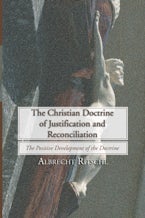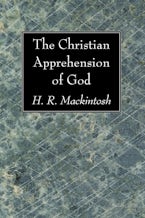God in Experience
Essays of Hugh Ross Mackintosh
Edited by Paul K. Moser and Benjamin Nasmith
Imprint: Pickwick Publications
Hugh Ross Mackintosh (1870-1936) was a notable Scottish minister and theologian who studied under Martin Kähler and Wilhelm Herrmann. Mackintosh had John Baillie and Thomas F. Torrance among his own students. He authored several important books, including The Doctrine of the Person of Jesus Christ and Types of Modern Theology: Schleiermacher to Barth.
Paul K. Moser is Professor of Philosophy at Loyola University Chicago. He is the author of The God Relationship (2017), The Severity of God (2013), The Evidence for God (2010), and The Elusive God (2008). He is editor of Jesus and Philosophy (2009), among other collections. He has published a number of articles and chapters on religious epistemology, in such journals as Religious Studies and The Expository Times.
Benjamin Nasmith is a recent graduate of Briercrest Seminary.
“The theological vision of Hugh Ross Mackintosh, one of the foremost theologians of the early twentieth century but often overlooked today, warrants fresh consideration. God in Experience offers an excellent (re)introduction to his thought. This valuable and needed collection of essays and sermons centers around and explores the far-reaching implications of one provocative premise: the starting point for theology is divine self-revelation in personal experience.”
—Kenneth E. Kovacs, author of The Relational Theology of James E. Loder: Encounter and Conviction
“H. R. Mackintosh was one of the most influential theologians of his generation. Now, this carefully chosen collection introduces his thought to a new generation of readers, beckoning us to hear again the Christian community’s claim that in Jesus we experience ‘the supreme moral reality’ for whom the contingencies and experiences of history, and of our lives, are neither an embarrassment nor foreign territory. While few will follow Mackintosh at every point, his attention to the character of life and faith as experienced communion invites our consideration still.”
—Jason Goroncy, Whitley College, University of Divinity, Australia





